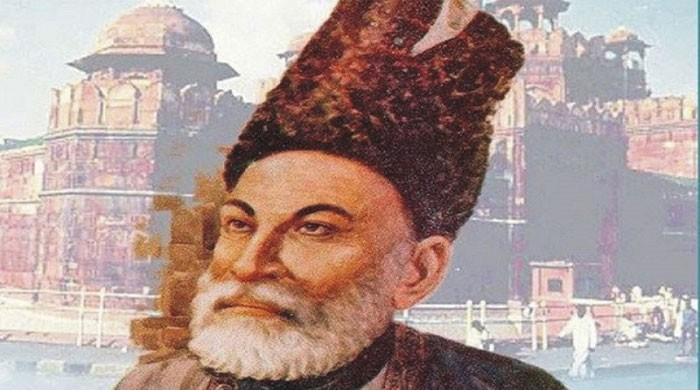Islamabad, Feb 14: The 156th death anniversary of legendary poet Mirza Asadullah Khan Ghalib is being observed on Saturday, honoring his unparalleled contributions to Urdu and Persian literature. Born on December 27, 1797, in Agra, Ghalib’s poetry remains an enduring symbol of philosophical depth, love, and wit, securing his place as one of the most influential literary figures in history.
Spending most of his life in Delhi, Ghalib gained immense fame for his ghazals, which continue to shape Urdu poetry to this day. His verses delve into themes of love, sorrow, existential struggles, and the complexities of human emotions, resonating deeply with readers across generations. His works, including Diwan-i-Ghalib, Kulyat, and Maktoobat, were originally published in Persian, showcasing his command over classical literature.
READ MORE: Minimum Taxes Essential to Attract Local, Foreign Investment: FCCI President
Beyond poetry, Ghalib’s writings also capture the socio-political landscape of his time. He witnessed the decline of the Mughal Empire and chronicled the era’s turbulent transformations, reflecting on themes of power, displacement, and cultural change. His letters, celebrated for their conversational style and wit, provide valuable insights into the historical and social milieu of 19th-century India.
Ghalib’s literary legacy continues to inspire poets, scholars, and admirers worldwide. His ghazals have been widely adapted into music and recitations, keeping his verses alive in the cultural consciousness. He passed away on February 15, 1869, in Delhi, but his poetry remains immortal, a timeless testament to the depth of human experience and artistic brilliance.



